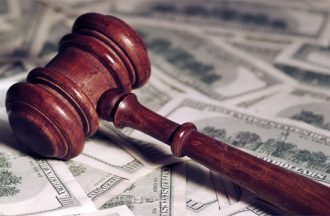
There are plenty of good reason why you should organize your small business as a Limited Liability Company: LLCs blend the benefits of incorporation (legitimacy and security) with the flexibility of a partnership or sole proprietorship.
Additionally, LLCs are flow-through business enterprises, which means that entrepreneurs are able to channel income directly from the profits of the business while protecting their personal assets from corporate liability. This protection is known in business circles as the “corporate veil,” and if you are planning to designate your business as an LLC, then you will want to take every reasonable precaution to keep your corporate veil intact.
Owners and members of LLCs must take steps to legally separate their business from their personal assets.
Occasionally, judges and attorneys will attempt to “pierce” the corporate veil in order to attack a business owner’s property or savings. Members and owners who have acted in bad faith, broken the law, or attempted to defraud investors, almost always relinquish the protections associated with limited liability.
In rare cases, courts have been willing to lift the veil when limited liability protections appear to contravene the greater public good. That said, if you act in good faith and follow the rules, it is entirely reasonable to expect that your assets will be safe from any and all debts associated with your business.
Here are three essential tips to make sure that you’re doing everything you can to keep the veil in tact.
1. Make Your LLC Status Known
Some states require every new LLC to publicize their limited liability status. Usually, a simple advertisement in a local newspaper will suffice. But even if your state does not require a public declaration, try to promote your limited liability status when- and wherever possible.
Print new business cards that prominently display the name of your business (every LLC is required by law to have a unique name that ends with either Limited Company, Limited Liability Company, or simply “LLC”).
Update your website and your stationary, and make sure that your bank accounts and credit cards are registered under the correct name. Every bill and invoice, as well as every bid, lease, or contract, should clearly reference your limited liability status.
The point here is to make sure that any reasonable person can tell the difference between what belongs to your business, and what belongs to you as a private citizen.
2. Ensure Adequate Capitalization
If your business does not have adequate equipment, supplies, and cash to operate and meet demand, then a judge might deduce that your LLC was established “in bad faith.” Essentially, the judge would be claiming one of two things: Either you 1) continued to act as a sole proprietor despite claiming limited liability protections, or 2) you never actually intended to do business for a sustained period of time.
It doesn’t matter where the money comes from. You can invest your savings, accept gifts and loans, or establish lines of credit with financial institutions—it’s all good. But without adequate capital your business is bound to fail, so raise cash however you can, and make sure that any and all capital investments “flow-through” the proper business channels before they reach your private bank account.
3. The Devil Is In the Details: Get Your Documents Straight
Owners and members of LLCs need to take steps to legally separate their business from their personal assets. It boils down to one word: Paperwork.
Your LLC first needs to file Articles of Organization with the state. You will need to register your business’s name with the Secretary of State’s business office, and you may need to submit an Operating Agreement that outlines the responsibilities of members, owners, and management.
After your business is up and running, you will need to keep rigorous financial records. Additionally, it is a good idea to formally document board meetings. Back up all of your paperwork on a digital device such as an external hard drive.
And every time you are tempted to cut a corner, remember, you are putting your assets—your car, your home, your retirement savings—at risk. Be safe now, and you won’t have to be sorry later.








